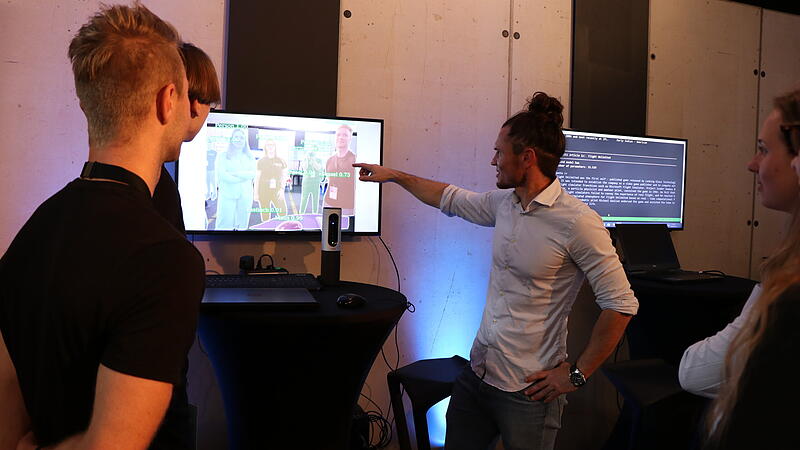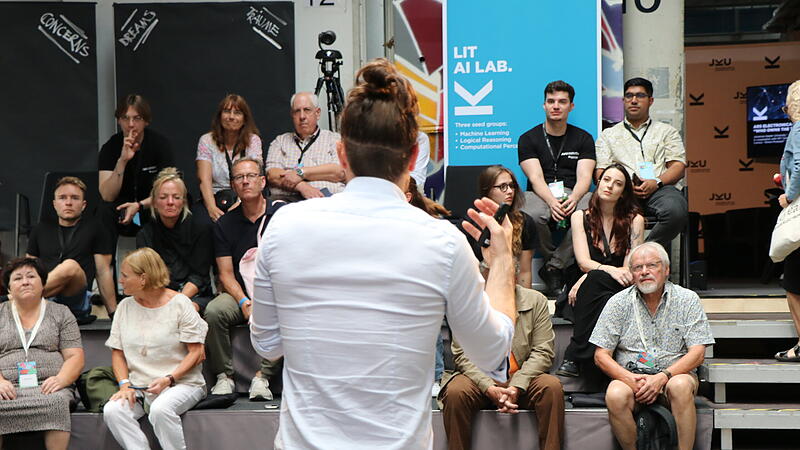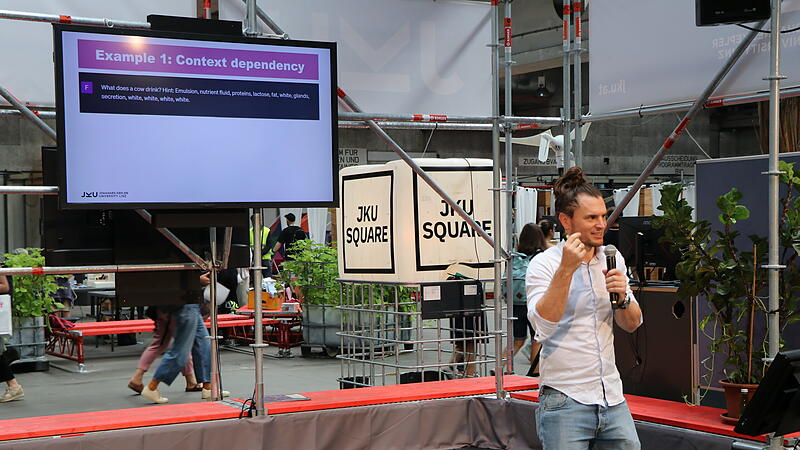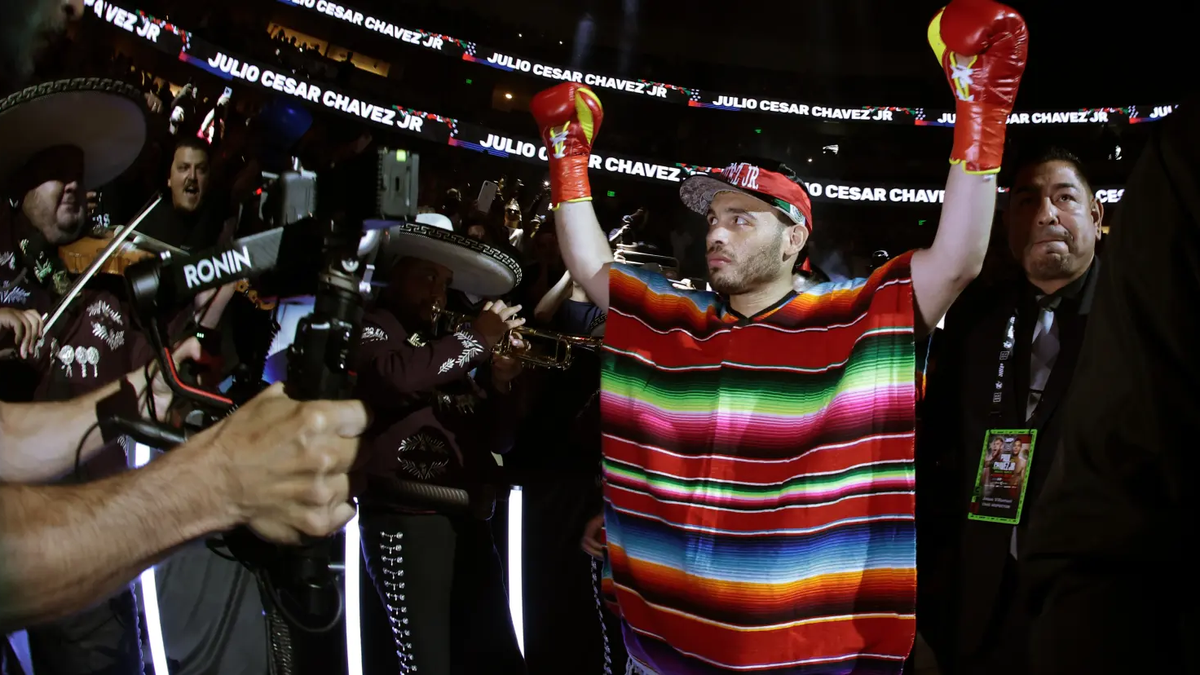Image: JKU

Image: JKU

Image: JKU
ChatGPT is on everyone’s lips – including in the JKU Square at the Ars Electronica Festival in the Linzer Tabakfabrik. Today and tomorrow, scientists from the “LIT AI Lab”, the Kepler University research center for artificial intelligence (AI), will be presenting their work there. In the “AI School” they teach the audience how AI in general and language models in particular work – and how they could fundamentally change science in the future.
One of the speakers is JKU professor Günter Klambauer. In his talks he deals with language models such as ChatGPT. “They essentially work with probability. The user enters text, for example a question,” explains the researcher. The artificial intelligence then compares this question with huge databases of text and determines which words would most likely follow one another in an answer to this question. “Because the amounts of data are so large, the answers are surprisingly precise,” says Klambauer.

Image: JKU
Application in medicine
As the second part of its festival presence, the JKU has set up an information area in which the functionality of AI is explained and demonstrated in more detail. “There we also refer to areas of application other than language – in medicine, for example, such probability models could identify new drug ingredients,” says Klambauer.
The results would then have to be checked by scientists using classic methods. “But because AI examines such large amounts of data, it can identify connections that humans would probably miss. This is valuable for research in practically all disciplines,” says the scientist.
Students from the bachelor’s and master’s courses in AI at the JKU are also at the festival. One of them is Abdul Basit Banbhan. Together with some fellow students, he leads guests through stations where the university’s AI research is demonstrated. Visitors are particularly concerned with popular examples of AI such as ChatGPT. “Some visitors are worried about AI. Others want to know how the technology works,” says Banbhan. The atmosphere at the festival is great.
This is confirmed by Banbhan’s fellow student Daria Kuklina, who is currently completing her bachelor’s degree in AI. She also helps look after visitors in the JKU Corner. She is enthusiastic about the festival atmosphere: “There are so many interesting artists and scientists there. People are excited and very curious,” she says.

Image: JKU
In between, she can always wander through the festival grounds herself. “It’s really extremely exciting. You can try out a lot of things and get to know people,” says the student.
Günter Klambauer says he is impressed by the JKU students: “They are still learning the subject matter themselves, but they can already explain how artificial intelligence works.” This is one of the essential values of the Ars Electronica Festival: “Here people from different disciplines come into conversation. This creates understanding and also breaks down barriers in science,” says Klambauer. A personal highlight was a workshop at the stand of the renowned Massachusetts Institute of Technology (MIT). This was represented at the festival for the first time at the invitation of the JKU. “The colleagues there were quite surprised at how much expertise we have. The conversation was very stimulating,” says Klambauer.
Weekend program
At the weekend, three program items take place every day in the JKU Corner at the Ars Electronica Festival.
On Saturday from 10 a.m. to 1 p.m., the university team will hold a “Futuring Exercise” in which participants will think up various scenarios for the near future and react to threats and opportunities, which in turn are generated by an AI.
On Saturday from 2:30 p.m. and 4:30 p.m. and on Sunday at 11 a.m., 1 p.m. and 3 p.m. Andreas Pfaffenberger from the Circus of Knowledge will show the Punch and Judy show “KI. – Kasperl intervenes”, which shows parallels between the doll and chatbots.
Source: Nachrichten




